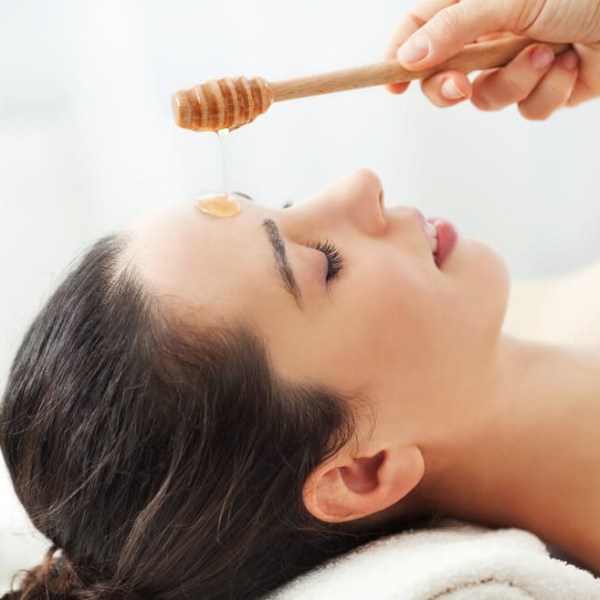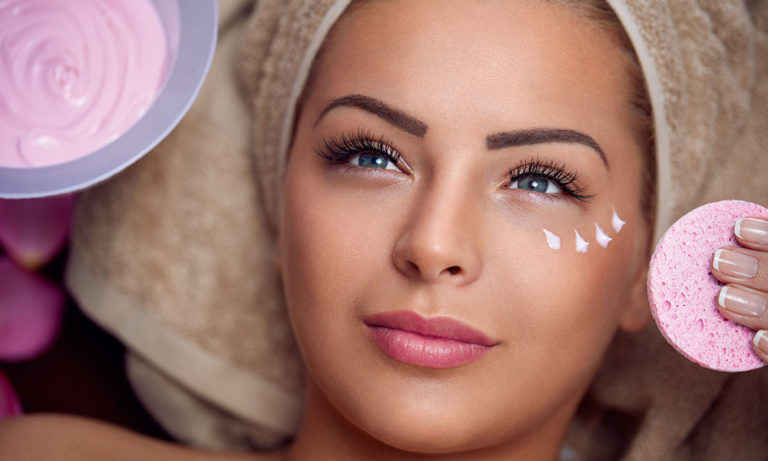Honey, a gift from nature for your skin care

The use of honey as both a food and natural topical remedy is not new. Archaeological evidence suggests that honey has been used for nutritional, medicinal and cosmetic purposes since the very earliest of human civilizations. Mesolithic rock paintings from over 8,000 years ago are believed to depict the collection of honey and honeycomb from wild bees nests. Ancient Egyptians used it in baking, for therapeutic baths, to promote wound healing and for ceremonial offerings. The ancient Vedic texts of India dating back 4,000 years, also include references to this naturally healing substance. This sweet food, organically created by bees from the nectar of flowers, has clearly long been regarded as one of nature’s most special gifts.
The historical uses of honey maintain relevance in our modern world as well. Many global cuisines still use golden drizzles of raw honey to sweeten dishes. Cough and cold remedies meant to soothe troublesome sniffles and sore throats often contain traces of the stuff, while cosmetic companies still advertise the use of “all-natural wrinkle fighting honey” in their products. Yet recently, research on the clinical advantages of using topical pure raw honey on the skin have launched this traditional remedy beyond such anecdotal niceties and into a new realm of scientific significance.
Comprehensive studies on the chemical and pharmacological effects of raw honey on the skin have grown in numbers in the past years, making appearances in esteemed medical journals where such “alternative” jargon was previously shunned. Dermatological applications for honey including wound healing, burn treatment and scar removal, have proven clinically viable across patient trials, paralleling the success of sophisticated manufactured pharmaceuticals. Some hospitals and practitioners are now even prescribing specifically prepared varieties of honey as treatment for wounds, skin irritations and acne. The research has been groundbreaking and perspective-shifting for allopathic medicine to say the least.
Theories to describe the success of honey in the treatment of the skin include such complex mechanisms as cytokine induction, matrix metaproteinase expression and epithelial-mesenchymal transition (1). In other words, honey has significant antimicrobial, anti-inflammatory and antioxidant capabilities that make it very useful as a conditioning agent for the skin. Fortunately, the concentrated clinical benefits of honey are also gentle enough to be harnessed for everyday use. All-in-all, it appears that familiar and conventional raw honey is actually a far more complex and valuable substance than often thought. This rediscovery of honey throughout modern dermatology, gives the concept of “back to the basics” an entirely new meaning.
Top 5 Ways that Honey Benefits the Skin
While the precise mechanisms of honey’s curative effects on the skin are still being researched, the following useful properties are very apparent and well understood:
- Powerful Antimicrobial- the enzymatic release of hydrogen peroxide (H202) and presence of active compounds such as methlyglycol in honey, give off bacteria-fighting capabilities. By putting a stop to the activity of irritating pathogens, raw honey helps to both quell existing inflammation and prevent future infections.
- Organic Moisturizer- the sugars in honey act as natural humectants and emollients, that increase the water content and reduce dryness in the skin even after they have been washed off.
- Regulates Skin pH- the slight acidity of honey creates a healthy environment on the skin that promotes tissue healing and regeneration.
- Nutrient Density- although composed primary of fructose and glucose, honey also contains proteins, amino acids, vitamins, enzymes, minerals, probiotics and other components that it delivers to skin cells.
- High Antioxidant Activity- powerful botanical compounds neutralize blemish- and wrinkle-causing free radicals on the skin surface and within deep tissues, before they cause damage.
After doing your own research, we recommend you to have a look here.
IRENE DIAMANTOPOULOU
EFFECTIVE MARKETING OF BEAUTY PRODUCTS & SERVICES




